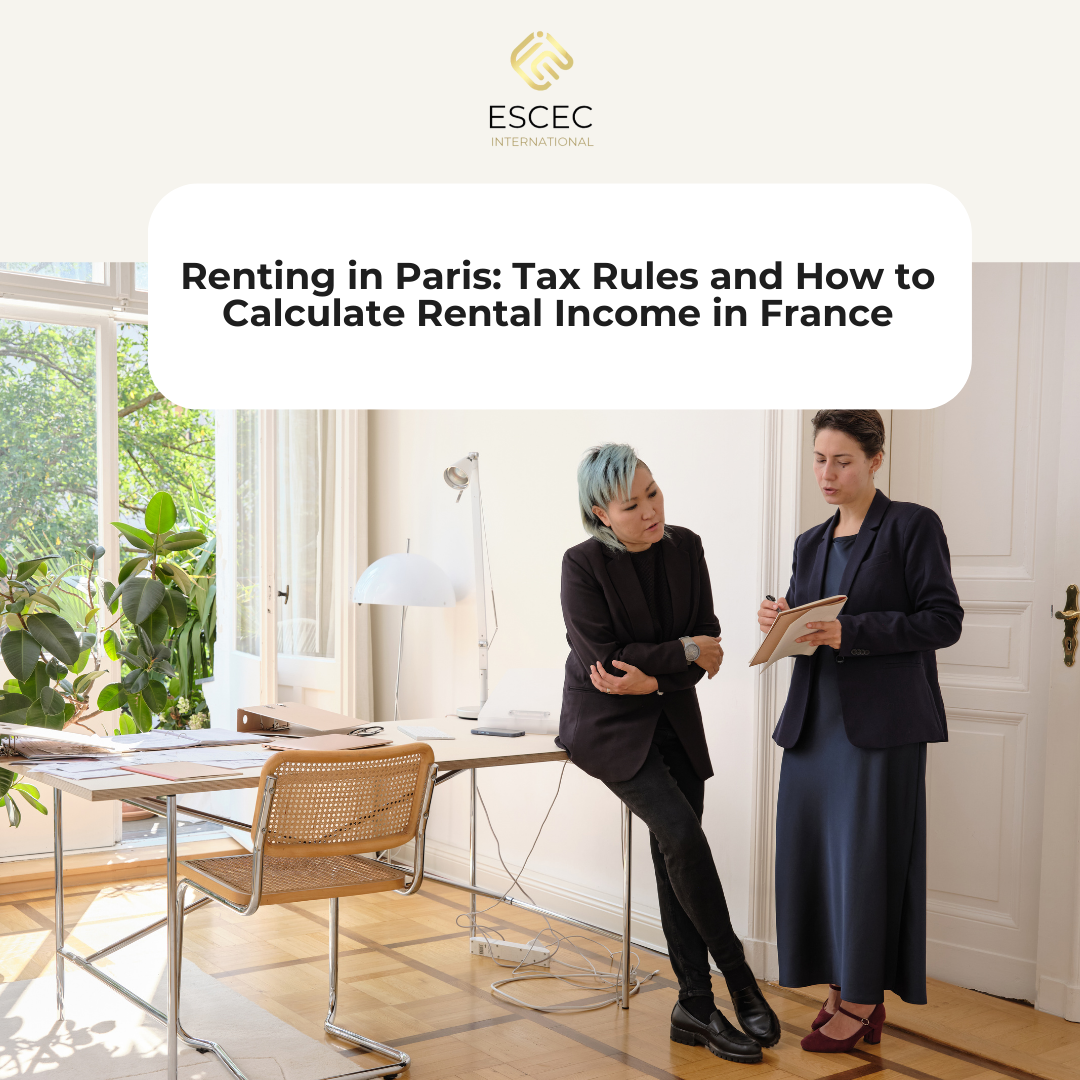Renting in Paris: Tax Rules and How to Calculate Rental Income in France
Paris remains one of Europe’s most dynamic rental markets, attracting both local and international investors. Renting out property in the French capital can be highly profitable, but it also comes with complex tax obligations. Whether you are a landlord or a tenant, understanding the French rental tax system is essential.
This article explains the main tax rules on rental income in Paris and provides a practical guide on how to calculate your rental income tax in France.
Rental Income Taxation in France
Rental income from French property is always taxable in France, whether you are a resident or a non-resident. All landlords must file an annual income tax return (Déclaration des Revenus) to report rental earnings, even if the result is a loss.
In addition to income tax, rental income is also subject to social charges (or solidarity tax for non-residents). The applicable rates depend on your residency status and the type of rental (furnished or unfurnished).
How to Calculate Rental Income Tax in France
The calculation of rental income tax depends on your residency status, the rental type, and the chosen tax regime.
Tax Rates for Non-Residents
-
Rental income up to €28,797 (2024 threshold) is taxed at 20%.
-
Rental income above this threshold is taxed at 30%.
These rates apply to net rental income (after deductions or allowances). Alternatively, non-residents can request taxation under the progressive French income tax scale based on worldwide income, which may be beneficial in some cases.
Social Charges (Prélèvements sociaux / Solidarity Tax)
Non-residents must also pay social contributions:
-
7.5% for residents of the EEA (European Economic Area) and the UK.
-
17.5% for residents outside the EEA.
Furnished vs. Unfurnished Rentals
The tax regime differs depending on whether the property is rented furnished or unfurnished.
Furnished Rentals (Bénéfices Industriels et Commerciaux – BIC)
Furnished rentals are treated as a commercial activity.
-
Micro-BIC regime: If annual rental income is under €77,700, landlords can benefit from a 50% allowance on gross rental income.
-
Régime Réel: Allows deduction of actual expenses (loan interest, repairs, maintenance, management fees, insurance) and depreciation of the building and furniture. Often more advantageous, but requires detailed bookkeeping.
Unfurnished Rentals (Revenus Fonciers)
Unfurnished rentals fall under the property income regime.
-
Micro-Foncier regime: If rental income is below €15,000, a 30% allowance applies automatically.
-
Régime Réel: Landlords can deduct actual expenses such as mortgage interest, repairs, management fees, and property tax. This regime is mandatory when annual rental income exceeds €15,000.
Deductible Expenses for Landlords
Under the Régime Réel, landlords can deduct a wide range of expenses, including:
-
Loan interest and banking fees
-
Property insurance
-
Management and agency fees
-
Maintenance, cleaning, and repair costs
-
Local taxes (taxe foncière)
-
Depreciation of property and furniture (for furnished rentals)
These deductions significantly reduce taxable income but require accurate documentation.
Local Taxes in Paris
Beyond income tax, landlords should also be aware of annual local taxes:
-
Property tax (taxe foncière): Paid by the property owner.
-
Housing tax (taxe d’habitation): Abolished for primary residences, but still applies to secondary homes or certain situations.
For Tenants
Tenants in Paris generally do not pay tax on rent. However:
-
They may be liable for taxe d’habitation if renting a secondary residence.
-
Rent may sometimes be deductible if part of the property is used for professional purposes.
Short-Term Rentals
Short-term furnished rentals, such as seasonal lets, are tightly regulated in Paris. Property owners must comply with city rules and tax obligations:
-
All income is taxable, regardless of rental duration.
-
Registration with the Paris City Hall is often required.
-
Non-compliance can result in heavy penalties.
Choosing the Right Tax Regime
The choice between Micro and Régime Réel depends on your income level and deductible expenses:
-
Micro schemes are simple but less flexible.
-
Régime Réel usually offers greater tax savings if your expenses exceed the flat-rate allowance.
If you are unsure, consulting a French tax professional is highly recommended.
Conclusion
Renting in Paris can be a profitable investment, but landlords and tenants must carefully navigate the French tax system. From income tax and social charges to local taxes and deductions, compliance is key to optimizing your rental income.
At ESCEC International, we assist residents and non-residents in calculating their rental income tax, choosing the most beneficial tax regime, and filing French tax returns with confidence.
👉 Contact our team today to ensure your Paris rental property is fully compliant and tax-efficient.

